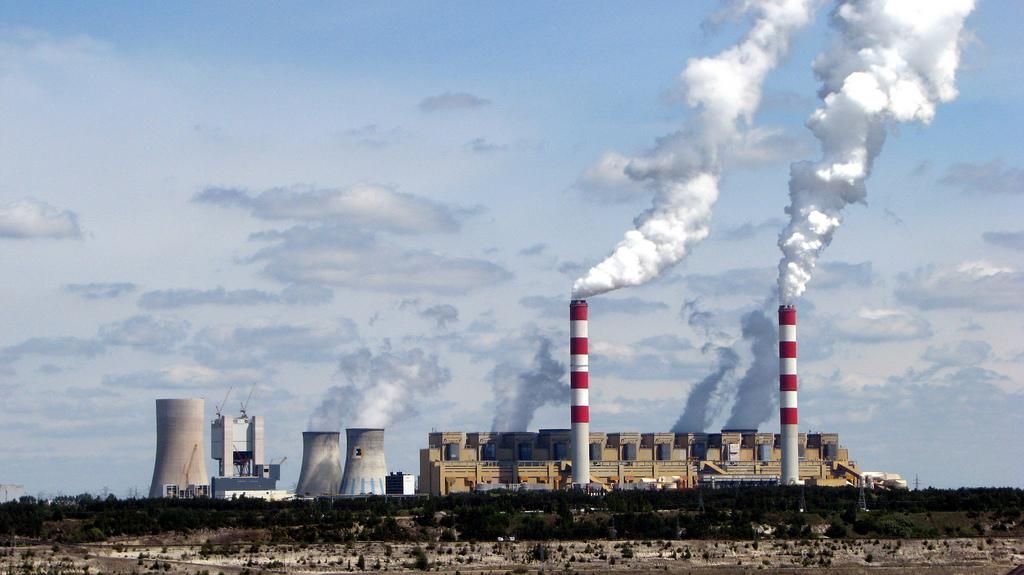The last European Council meeting was held last week on the 17th and 18th of October, and the agenda was greatly overshadowed by the Brexit issue, since this was the last EU leaders’ meeting before the Brexit deadline of October 31st – which Boris Johnson now seems obliged to push further to the end of January 2020, but that is a story for another time. The meeting was hailed as a great success due to the unanimous agreement on the Brexit deal that could secure an orderly exit of the UK from the EU. Hidden from the spotlight, however, came another not-so-great decision that is in fact crucial for the whole world rather than just the UK. In the meeting, a decision was reached to postpone the vote on Europe’s Climate Neutrality Vision 2050, till the next EC meeting in December.
The Climate Neutrality Vision 2050 first came to light last year in November 2018, when the European Commission presented it as a strategic vision for Europe to reach net-zero carbon emissions by the year 2050. The vision outlines broad paths towards achieving this goal and focuses on key concerned sectors such as energy and transportation. Should it pass to EU law, it would bring the EU up to standard with the global commitment of the UN’s Paris Climate Agreement of keeping global warming below 1.5 degrees, especially that the EU is the third largest emitter of Greenhouse Gases after China and the United States. The German-led vision, already criticized by climate activists as not enough, was presented to the EC for a vote last June, but was vetoed by Poland, Hungary, Czech Republic, and Estonia who citied vagueness of implementation mechanisms as the main problem. Estonia later rescinded its veto and joined the rest of the EU in supporting the vision, but the second vote was again postponed last week to be considered in December instead, as it seemed very likely that the other 3 countries, led by Poland, would still retain their veto.
The actual underlying problem is one of pure financial cost. The EC estimates that 180 to 290 billion euros are needed annually as investments in order to upgrade the infrastructure and energy systems to be at par with the Paris Agreement. Meanwhile, a country like Poland gets over half of its power from the “dirtiest” energy source; hard coal. A transition to a zero-carbon economy for Poland would entail market disturbances and require huge government investments, the burdens of which would have been levied on the people in the form of taxation and/or higher costs, which is why the Polish government was asking for a clear compensation mechanism for those countries who would be disproportionately burdened. “We need to develop new instruments (including finances) in order to support effectively the transition to a climate neutral economy,” according to a Polish document that was circulated ahead of last week’s EC meeting. The document explained that while designing these new instruments, various differences in EU member states should be considered such as different energy mixes, unequal access to capital, different development levels, and differences in wealth and purchasing powers of citizens.
The idea that developed countries should support lesser-developed ones in climate action is not a new concept. In fact, it had been highlighted very clearly from the very beginning of global climate action and is directly stated in more than one article of the Paris Agreement, that support should be extended to developing countries and should include technology, capacity-building, and outright direct financial contributions. The specific case of Poland undoubtedly carries some internal politics, such as Poland’s negotiation position in the EU’s upcoming 2021-2027 budget. However, it is unique in two aspects. Firstly, Poland is actually a high-income economy and is getting more and more recognized as a developed market rather than an emerging/developing one, which further highlights the significant cost burden and complexity of the transition to a climate-resilient economy. Secondly, it brings with it a solution; a proposal for a Just Transition Fund, that aims to protect countries or regions that would be most affected by this shift to zero-carbon. The Polish Economic Institute estimates that the fund should have a minimum annual size of 10 billion euros, ideally 20 billion, significantly higher than the originally proposed version of it in the EU of 4.8 billion.
Climate action in general, and a net zero-carbon emissions in particular, is more crucial now than ever, and every day wasted without collective action is projected to have significant if not dire consequences in the future. However, policy alone seems ineffective, or at least unjust, if it does not consider the cost burden. The case of Poland poses some very interesting questions: who pays for this crucial and urgent transition? The Polish government? The Polish people? The EU? International funders? How should the burden be distributed? Joint funds such as the Just Transition Fund could be a solution, but that in itself still does not answer the previously posed questions. And finally, if this is the case with an EU member and a high-income economy, imagine the extent of that same problem on a developing nation or a low-income economy.


